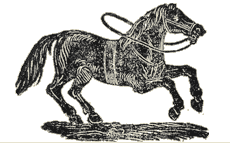- Domovská stránka
- Základní vyhledávání
- Rozšířené vyhledávání
- Hledání kalendáře
- O databázi
- Nápověda a kontakt
- Dary
- Podmínky použití
Vyběr jazyka




Název události:
First annual quartet entertainment [kvartettní zábava / Quartett-Soirée]
Místo konání: Clam-Gallas Palace
Typ akce: Art music culture
Datum: 18/02/1850 5pm
Sézona: Lent
Programme comprising:
• Němec, František : vl Král, Jan : va Träg, Anton : vc Köckert, Adolph : vl
• Smetana, Bedřich : pf Träg, Anton : vc Köckert, Adolph : vl
• Němec, František : vl Král, Jan : va Träg, Anton : vc unspecified, ? : vc Köckert, Adolph : vl
komentář:
Early information that a series of chamber music soirées was to be performed in 1850 appeared in Bohemia 31/1/1850. This brief report commented that last year’s soirées by Němec, Träg, Král and Smetana remained happily in the memory of all music friends, and that the new series being organized promises programmes of the utmost interest. Among the works to be performed would be a new string quartet by ‘our magnificent Alexander Dreyschock’.
Bohemia 3/2/1850 published news that the ‘Quartet soirées of Messrs Němec, Köckert, Král, Trág [Träg] and Smetana take place this year on the following 3 successive Mondays in Lent, namely: 18th and 25th February and 3th March, in Count Clam’s Palace.’ A subscription to all three events was noted to cost 2fl; single tickets cost 50kr. These could be purchased from the music shop of J. Hoffmann. Further news of these soirées appeared in Bohemia 17/2/1850 in a report that noted ‘Tomorrow, 18th February in Count Clam’s Palace takes place the first Quartet Soirée. The programme contains a string quartet by Haydn in D major, a trio with pianoforte by Beethoven in B-flat major and a string quintet by Veith [Veit] in C minor.’ The Tagesanzeiger text of that same issue of Bohemia also listed the event, its time and venue.
Prager Zeitung 16/2/1850 published news of this imminent production, simply reporting that ‘The first Quartet-Soirée takes place in Count Clam’s Palace on Monday 18 February’, and listing the three works to be performed.
A review, signed ‘V.’, of the first soirée appeared in Bohemia 22/2/1850. The event, which the critic noted was better termed a ‘chamber-music soirée’ than a quartet soirée, attracted a numerous audience. The ‘excellently chosen’ programme opened ‘with one of the sublime creations from the start of the great period of instrumental music, namely Haydn’s D major Quartet.’ This work inspired effusive praise for the ‘clarity of the poetic consciousness, the magnificent conception and idiom of the old master ... the genial humour illuminating the easy flow of ideas, the ingenuity in the consequent development of fundamental themes or accompaniment figures [holding together the form].’ Beethoven’s ‘universally known’ B-flat major Trio, although stated as being performed by Smetana (piano), Köckert (viola) and Träg (violoncello), was almost certainly his op.11 and the ascription for ‘viola’ rather than violin an error. Köckert himself was a violinist and the Trio itself, although originally scored for piano, clarinet and violoncello, was also published in a version for violin replacing the clarinet part. The composition was held by the critic to be of a ‘daunting subjectivity’, deriving from a divine impulse to gain ‘reconcilliation and light from struggle and darkness’, a dual nature contrasting the ‘sceptical-philosophical’ with the ‘naïve-poetic’. It was also noted to be free from the ‘oppression of dogmatic form’. Still greater enthusiasm was inspired by the final item in the concert. Veit’s C minor String Quintet was variously described as a work of great invention, poetry, atmosphere and of native character in its themes. It was distinguished in its substance, masterful handling of form and was inspiring in affect. The ‘profoundly poetic Scherzo’ had to be repeated. The performance itself ‘appeared to be inspired by the presence of the composer ... [and] was as precise as it was fiery.’ Finally, the critic lamented that ‘so highly gifted, productive Tone-poet as Veit’ was prevented from pursung art due to his professional career and duty [as a regional judge].
The additional violoncellist in the Quintet was not identified by any of the listed sources.
Přehled zdrojů:
Bohemia (31/01/1850)Bohemia (03/02/1850)
Prager Zeitung (16/02/1850)
Bohemia (17/02/1850)
Bohemia (22/02/1850)